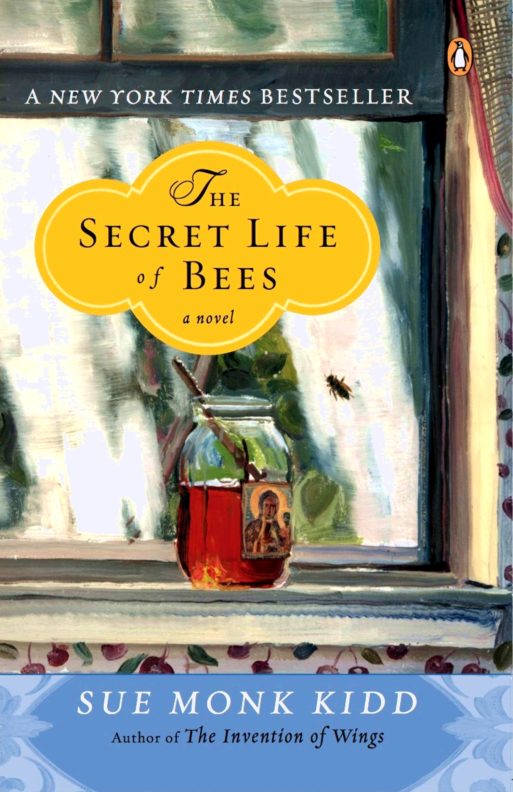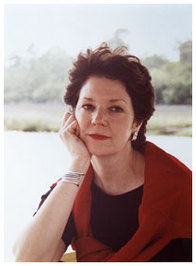 Growing up has never been easy for any one. In Sue Monk Kidd’s critically acclaimed first novel The Secret Life of Bees, her protagonist, Lily Owens, does so in the midst of the Deep South’s Civil Rights revolt. The memory of her mother’s death, which she witnessed, and may have even inadvertently played a part in, is indelibly printed in her mind. She knows that there is more to the world than the limited confines of her small South Carolina town, with its bigoted locals, and her own abusive and perpetually angry father T. Ray and his road-side peach farm. She receives much needed comfort from her warm and protective black nanny, Rosaleen, who effectively raised her since her mother’s death. But, after Rosaleen registers to vote, and sets off to exercise her franchise for the first time, she is waylaid by some of the racist townsfolk, and is subsequently imprisoned for assault. Lily runs away. Then she busts Rosaleen out of prison, and together they flee into the Carolina hinterlands on the trail of Lily’s mother, based on one cryptic clue scrawled on the back of a framed picture of the Black Madonna, which has hung in Lily’s house since her earliest memories, and which she knows to be one of her mother’s last possessions.
Growing up has never been easy for any one. In Sue Monk Kidd’s critically acclaimed first novel The Secret Life of Bees, her protagonist, Lily Owens, does so in the midst of the Deep South’s Civil Rights revolt. The memory of her mother’s death, which she witnessed, and may have even inadvertently played a part in, is indelibly printed in her mind. She knows that there is more to the world than the limited confines of her small South Carolina town, with its bigoted locals, and her own abusive and perpetually angry father T. Ray and his road-side peach farm. She receives much needed comfort from her warm and protective black nanny, Rosaleen, who effectively raised her since her mother’s death. But, after Rosaleen registers to vote, and sets off to exercise her franchise for the first time, she is waylaid by some of the racist townsfolk, and is subsequently imprisoned for assault. Lily runs away. Then she busts Rosaleen out of prison, and together they flee into the Carolina hinterlands on the trail of Lily’s mother, based on one cryptic clue scrawled on the back of a framed picture of the Black Madonna, which has hung in Lily’s house since her earliest memories, and which she knows to be one of her mother’s last possessions.
Lily has a fascination with bees. In her childhood she would imagine them swarming into her room and filling the place with the whirring of their wings. On the road with Rosaleen, they find another house of bees, or, more accurately, a house of bee-keepers: three black women who are largely shunned by the racist white town, and who live, and worship, in highly unconventional ways. Their idol is a wood carved statue of the Black Madonna, the object of Lily’s picture. It takes some time for Lily to go right out and ask them if the women knew her mother, but, when she finally does, it makes for a fascinating and uplifting. Often times, this book strains both credibility, and the willingness of the reader to engage in what many would consider out-and-out schmaltz. But there is always emotional intelligence behind the writing, and, even if the story of a white outcast finding a home among accepting black women sounds a little too perfect, as does the outright villainy of her father T. Ray, all in all, if we are willing to periodically suspend our cynicism, the story works.
There are moments of real beauty, such as when Lily contemplates life on the banks of a river, following the drowning death of one of the principal characters. “Even May’s death had not ruined that river for me,” she thinks, and we readers are strangely heartened. As is typical in a coming-of-age story, the initial purpose of Lily’s quest, to find the truth about her parents, eventually becomes secondary to her own personal mission of gaining maturity and the ability to live life on her own terms. There is something in Lily’s voice, a fierceness in her character and in her willingness to speak the truth, whatever she might perceive it to be, that is refreshing and original. Altogether, this is a very enjoyable book. Though, as is often the case anyways, you might have to tell and remind yourself to enjoy it in the first place.
- SevenPonds reviews the film 2004 film “Garden State,” a very different take on self-discovery following the death of a parent
- Joy Harjo’s poetry explores the significance of reflection, on life and death
- Read our piece on Etta James, following the legendary singers death in February of this year

 “The Secret Life of Bees,” by Sue Monk Kidd
“The Secret Life of Bees,” by Sue Monk Kidd



 First the Wealth Gap, Now the U.S. Has a Growing Health Gap
First the Wealth Gap, Now the U.S. Has a Growing Health Gap
 How to Comfort A Dying Loved One
How to Comfort A Dying Loved One
 Our Annual Seven Holiday Gifts for Someone Who Is Grieving, 2024 Edition
Our Annual Seven Holiday Gifts for Someone Who Is Grieving, 2024 Edition














